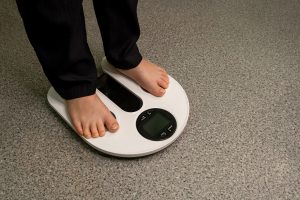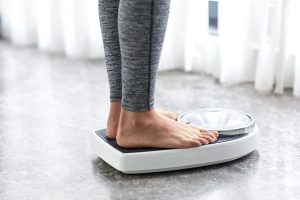 Most people become obese when they habitually consume more calories than the amount needed to maintain their regular bodily functions. However, obesity may occur in some people more easily than in others, partially as a result of their genes.
Most people become obese when they habitually consume more calories than the amount needed to maintain their regular bodily functions. However, obesity may occur in some people more easily than in others, partially as a result of their genes.
More than 50 genes are associated with obesity. These genes typically affect the brain signals and subsequent hormonal responses associated with food intake; for example, the fat mass- and obesity-associated gene (FTO) gene promotes food intake.
Most people do not have a single identifiable genetic cause for their obesity, but rarely, monogenic (single-gene) obesity may occur due to inherited changes in specific genes. This most commonly occurs due to the changes in the gene MC4R, which stimulates appetite. These changes may lead to extreme hunger and increase the risk of developing conditions such as hyperphagia (excessive eating).
Generally, individual genes only lead to small effects on a person’s likelihood of becoming obese. In most cases, obesity is actually the result of many genes and environmental factors interacting with one another.
For many people with an increased genetic likelihood of becoming obese, standard methods of managing weight, such as regular physical exercise and a balanced diet, can be effective. However, other people with these genes may only see minimal results from these methods. In these cases, a medical intervention such as bariatric surgery may be the best path forward.
Bariatric surgery is typically reserved for:
- People with a body mass index (BMI) of 40 or higher
- People with a BMI of 35 or higher who have a serious weight-related condition such as type 2 diabetes or high blood pressure
You can schedule an appointment at Flushing Hospital Medical Center’s Bariatric Surgery Center to determine whether this type of procedure is right for you by calling (718) 670-8908 or (718) 408-6977.
All content of this newsletter is intended for general information purposes only and is not intended or implied to be a substitute for professional medical advice, diagnosis or treatment. Please consult a medical professional before adopting any of the suggestions on this page. You must never disregard professional medical advice or delay seeking medical treatment based upon any content of this newsletter. PROMPTLY CONSULT YOUR PHYSICIAN OR CALL 911 IF YOU BELIEVE YOU HAVE A MEDICAL EMERGENCY.








